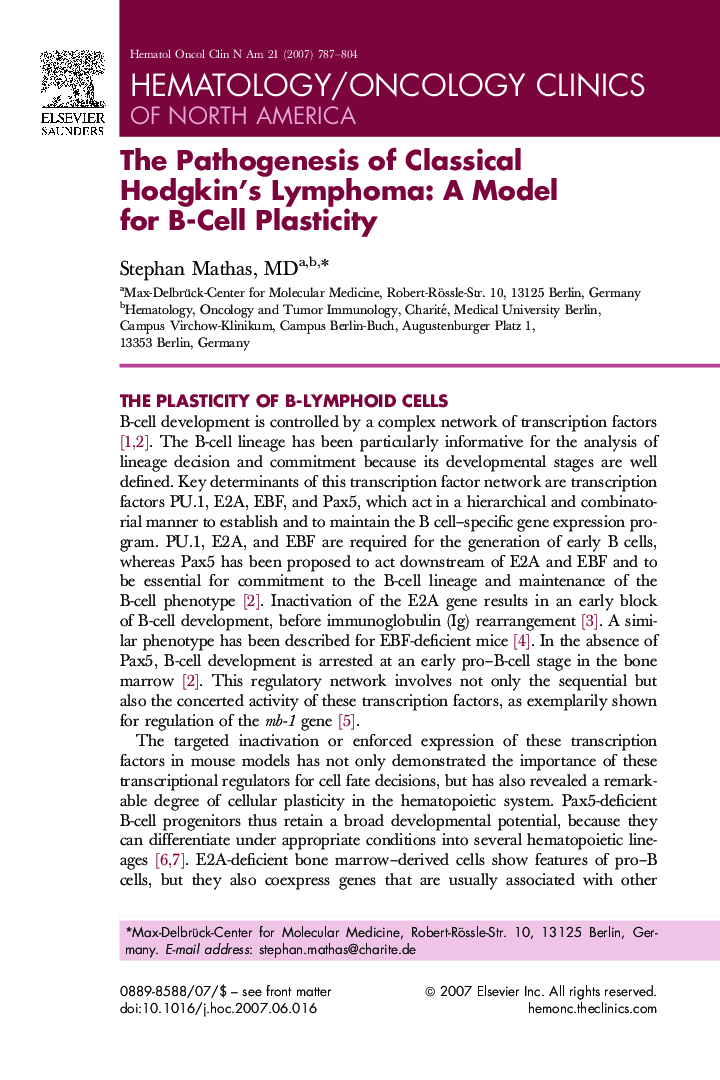| Article ID | Journal | Published Year | Pages | File Type |
|---|---|---|---|---|
| 3331650 | Hematology/Oncology Clinics of North America | 2007 | 18 Pages |
It has been shown that differentiated lymphoid cells can display a broad developmental potential and might even differentiate into other cell types. Recent data implicate such processes in the pathogenesis of classical Hodgkin's lymphoma (HL). In the malignant, B cell–derived Hodgkin's and Reed-Sternberg (HRS) cells of HL the expression of B cell–specific genes is lost, and B lineage–inappropriate genes are up-regulated. Experimental evidence has been presented in recent years that functional disruption of the B lineage–specific transcription factor program contributes to this process. HRS cells might be reprogrammed into cells resembling undifferentiated progenitor cells, which might offer an explanation for the unique HL phenotype and demonstrate a high degree of plasticity of human lymphoid cells.
